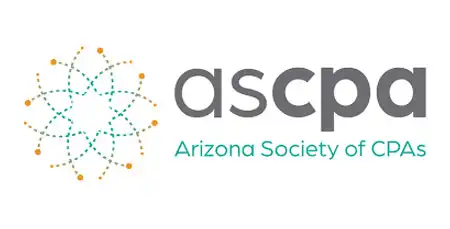Corporate Transparency Act Places New Reporting Requirements on Many Businesses
A new federal law requires many legal entities to report specific information about the business and its owners.
Effective January 1, 2024, the Corporate Transparency Act (CTA) requires disclosure of the “beneficial owners” of most companies doing business in the United States. Congress passed the CTA in 2021 as part of the Anti-Money Laundering Act, designed to combat the use of shell corporations, LLCs, and other entities to facilitate money laundering and other criminal financial activities.
The information will be reported to the Financial Crimes Enforcement Network (FinCEN), which is a bureau of the U.S. Department of the Treasury. FinCEN prepared answers to frequently asked questions relating to the Beneficial Ownership Information Reporting Rule.
Below is a summary of the CTA, followed by a list of action items for your entity to ensure compliance. Those action items include:
- updating stale contact and other important information; and
- addressing any “phantom” owners or managers, people who wanted to be part of your company, but who do not want to be found by creditors, former spouses, etc. Failure to disclose owners can subject you to civil and criminal penalties, so be careful and thorough.
For additional information, please view two helpful FinCEN resources:
DOES MY ENTITY HAVE TO FILE A REPORT?
According to the FinCEN FAQ document, there are two types of reporting companies: domestic and foreign.
A domestic reporting company is defined as:
- a corporation,
- a limited liability company (LLC), or
- any other entity created by the filing of a document with a secretary of state or any similar office (such as the Arizona Corporation Commission) under the law of a state or Indian Tribe.
A foreign reporting company is any entity that is:
- a corporation, LLC, or other entity formed under the law of a foreign country, AND
- registered to do business in any U.S. state or in any Tribal jurisdiction, by the filing of a document with a secretary of state or any similar office under the law of a U.S. state or Indian Tribe.
Sole proprietorships do not have to file, nor do some general partnerships.
With a few exceptions noted below, every entity that is created by the filing of a document with a state – whether formed by state law or under foreign law – must file a report. (See the discussion of exempt entities below.)
If you have any uncertainty about your entity’s status as a domestic or foreign reporting company, please check with your entity’s attorney.
WHAT ARE THE EXCEPTIONS?
Types of entity. The CTA provides a list of 23 “exempt entities” – mostly larger companies in regulated industries, such as banks, insurance companies, SEC-registered companies, utilities, many tax-exempt organizations, etc.
Entities exempt from the reporting requirement generally include:
- tax-exempt organizations under section 501(c) of the Internal Revenue Code;
- tax-exempt political organizations organized and operating to influence legislation or the appointment or election of public officials; and
- charitable trusts.
Size of entity. In addition to exempting certain types of entities, the CTA exempts entities based on their size. Specifically, the CTA exempts a “large operating company,” defined as an entity that (a) employs more than 20 full-time employees in the U.S.; (b) filed a Federal income tax return in the U.S. for the previous year demonstrating more than $5 million in gross receipts or sales, excluding sales from sources outside the U.S.; and (c) has an operating presence at a physical office within the U.S.
Inactive entities. The list of exemptions includes, at #23, “Inactive entity.” Qualifying for inactivity requires specific criteria that you can view in the FinCEN FAQ document at https://www.fincen.gov/boi-faqs#L_2.
If your entity does not qualify for one of the exemptions, you should plan to comply with the new law.
WHAT HAS TO BE REPORTED?
Entity information. The CTA requires an entity to report information about itself and about its “beneficial ownership.” The required entity information is basic, consisting of the entity’s:
- legal name;
- trade names or DBAs, if any;
- physical address;
- jurisdiction of formation (e.g., Arizona); and
- Taxpayer Identification Number (TIN).
Owner identifying information. The CTA also requires reporting of information about the entity’s “beneficial owners,” who fall within three general categories: applicants, owners, and individuals with “substantial control” over the entity. The information to be reported is relatively straightforward. Deciding who falls within these categories is more complicated.
For each of these individuals, the CTA requires reporting of the individual’s:
- name;
- date of birth;
- residential address; and
- an identifying number from an acceptable identification document such as a passport or U.S. driver’s license, along with an image of the identification document.
WHO ARE BENEFICIAL OWNERS?
Applicants. This applies only to entities that are created on or after January 1, 2024. For such entities, an “applicant” is the individual who directly files the documents that create the entity with the relevant government office. If a different individual directs or controls the filing but does not do the filing themselves, the entity has two “applicants”: the person who files and the person who directs the filing.
Owners. An entity must report any person who directly or indirectly owns 25% or more of the equity interests of the entity. Indirect ownership can be ownership through another entity, such as a corporation or a family trust.
Individuals who have “substantial control” over the entity. Individuals with “substantial control” in a corporate setting generally include managers of LLCs, as well as “senior officers” of corporations, such as the president, CEO, CFO, COO, and general counsel.
Indirect ownership and control. The CTA requires reporting of any individual who exercises ownership or control indirectly, even without a formal title or without a formal ownership interest. This can include “phantom” ownership such as an informal profit-sharing arrangement. It can also include individuals who do not have a formal corporate title but exercise control over the entity, such as deciding who is appointed in formal positions of ownership.
WHEN DO WE HAVE TO FILE?
- If your reporting company was in existence before January 1, 2024, you have until December 31, 2024, to file your initial report.
- If your reporting company is created during 2024, it must file its initial report within 90 calendar days after (a) the date on which the entity received actual notice that its creation or registration is effective, or (b) the date after the state first provides public notice of the entity’s creation or registration.
- For a reporting company created on or after January 1, 2025, the 90-calendar-day period mentioned above is reduced to 30 calendar days.
HOW DO WE FILE OUR REPORT?
Reports must be filed online, using the non-public, cloud-based portal maintained by FinCEN.
See “File the Beneficial Ownership Information Report (BOIR)” at https://boiefiling.fincen.gov/fileboir.
WHAT IF WE DO NOT FILE OUR REPORT?
Failure to file timely may be costly. Willful violations of the CTA can carry civil penalties (e.g., $500/day for each day past a deadline) and, in some cases, criminal liability (up to $10,000 in fines and up to two years in prison).
HOW OFTEN DO WE HAVE TO FILE?
Subsequent filings may be the riskiest and most burdensome issue for many businesses.
While filing your initial report does not seem too difficult, every time something in your report changes, you must file another report.
For all reporting companies, any change to a previously filed report must be reported to FinCEN within 30 days of the change.
GET READY
It is not too soon to start gathering the required information, especially if your business has multiple owners and/or multiple entities, or if you contemplate creating a new entity this year.
At the very least, make it the job of someone in your company to look further into the CTA’s requirements and prepare a timeline and procedures that will help you comply with the new law.
Update contact information. Be sure you have current contact information for all the individuals who may fall into the categories of applicant, owner, or controlling person.
Update corporate filings. In Arizona, you must file annual reports for corporations that list certain information about the company and its owners and officers. It is easy to copy the form from the last year and forget that things have changed. Be sure that the Corporation Commission records reflect your company’s correct information.
For LLCs, you should ensure that all information is accurately reflected in the Corporation Commission records. Your lawyer can help you with this.




